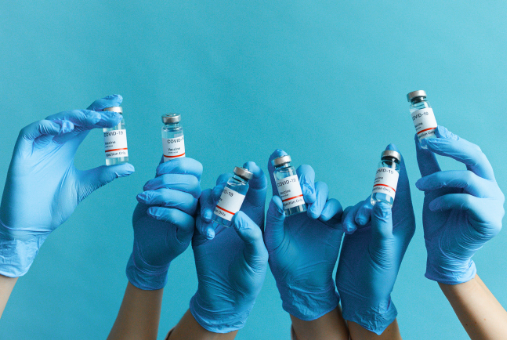
Video of the popular webinar offering international perspectives for journalists covering the COVID-19 vaccines is now available in six additional languages, amplifying the number of media practitioners able to benefit from this educational resource offered by the Knight Center for Journalism in the Americas, in collaboration with two United Nations agencies. “Covering the COVID-19 Vaccines: […]

Journalists who want to best inform the public about the vaccines and combat disinformation surrounding them can now take “Covering the COVID-19 vaccine: What journalists need to know” for free, online and at their own pace.
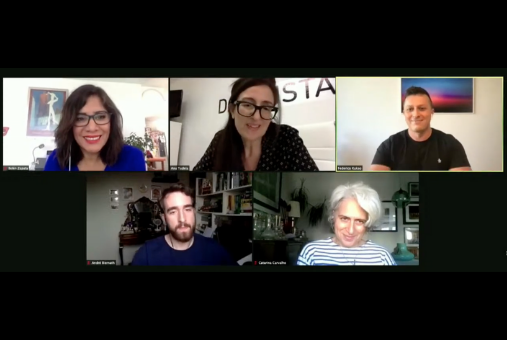
“It is symbolic and it is very important to understand the moment in which we live,” André Biernath said during the 14th Ibero-American Colloquium of Digital Journalism during the panel “Challenges in the coverage of the pandemic in Ibero-America amid the ‘infodemic,’ the epidemic of disinformation.”
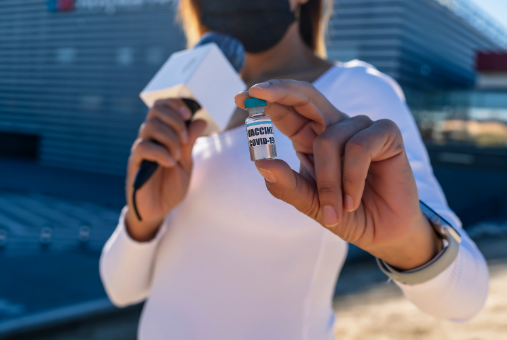
Journalistic associations in Latin America have been asking their governments to recognize journalism as a necessary profession for information during the pandemic. The region is the most deadly in the world for journalists in terms of deaths caused by COVID-19.
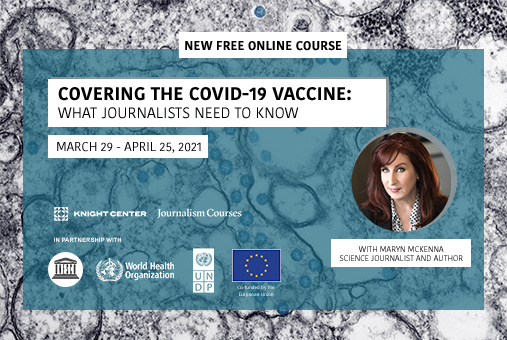
To help journalists inform the public about the COVID-19 vaccines and fight disinformation surrounding them, the Knight Center for Journalism in the Americas teamed up with UN agencies to offer a free online course taught by experts in the field.

“Disinformation and fact-checking in times of COVID-19 in Latin America and the Caribbean,” a Massive Open Online Course (MOOC) from the Knight Center, is now available as a self-directed course.
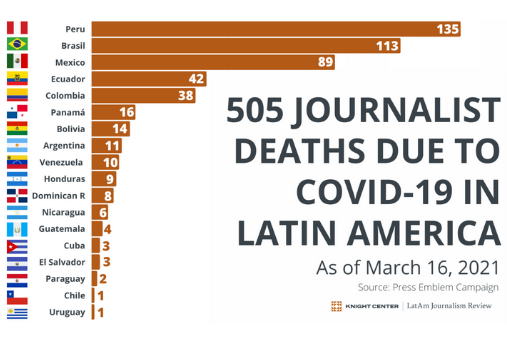
Swiss-based non-profit organization Press Emblem Campaign reports 908 journalists died of COVID-19 in 70 countries as of March 16. Of these, 505 occurred in 18 Latin American countries. That is, 55% of the total.

The Knight Center for Journalism in the Americas is offering the new course, “Covering the COVID-19 vaccine: What journalists need to know,” which will run from March 29 - April 25 2021 and will be offered in English, Spanish, Portuguese and French.

With social distancing rules, control over who asks questions –and when they’re asked– has increased in Latin America and the Caribbean.
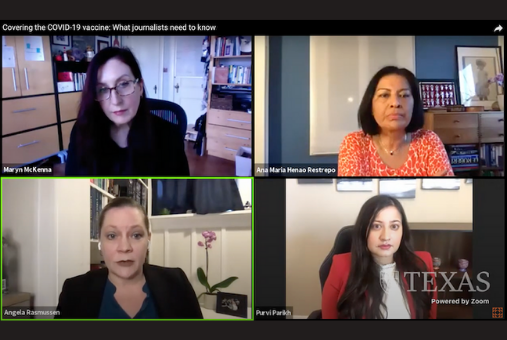
Video recordings of the Knight Center’s multilingual webinar, “Covering the COVID-19 Vaccines: What Journalists Need to Know,” are now available for free in Arabic, Chinese, English, French, Portuguese, Russian and Spanish.
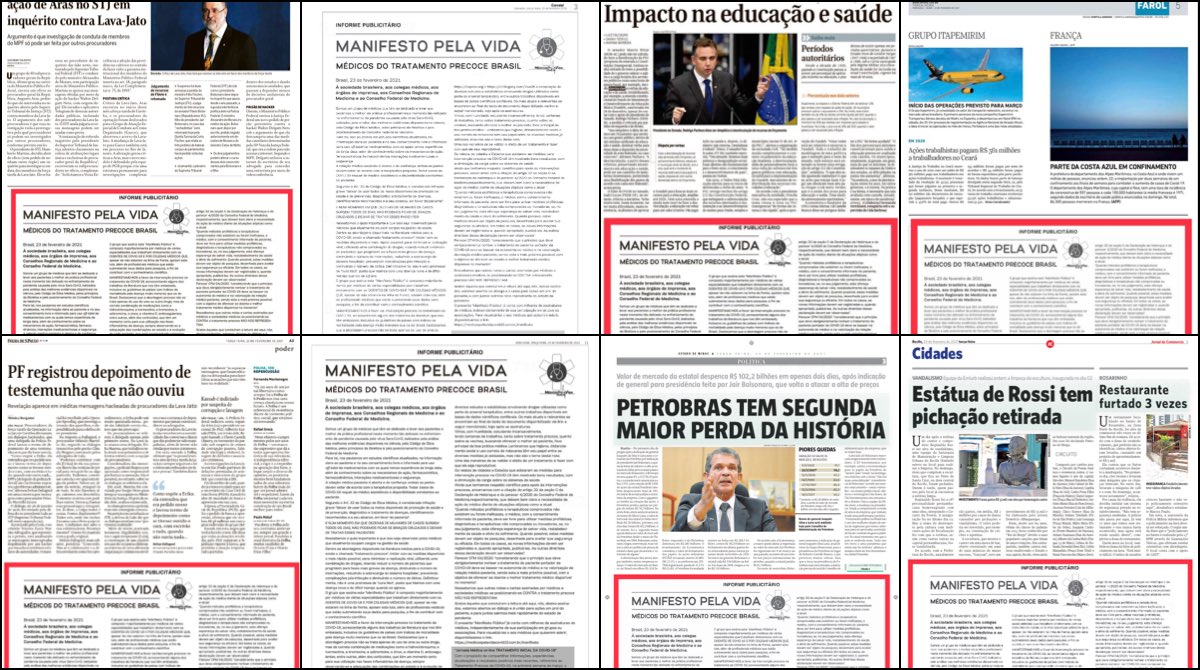
At least eight Brazilian newspapers published an advertorial in which an obscure association of doctors defends the adoption of a so-called 'early treatment' of COVID-19, whose benefit is not scientifically proven. The decision of the newspaper companies to open space, albeit an advertising one, for the transmission of false information about the pandemic generated criticism.
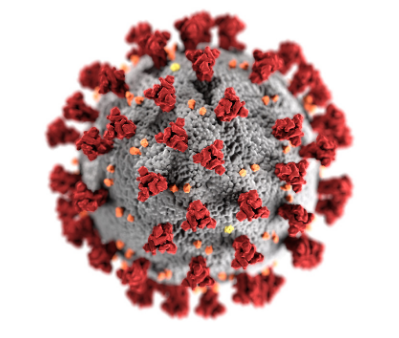
The overwhelming amount of information surrounding the COVID-19 pandemic, as well as the equally staggering levels of false information, led UNESCO and fact-checkers in Latin America and the Caribbean to create a digital hub to combat disinformation.